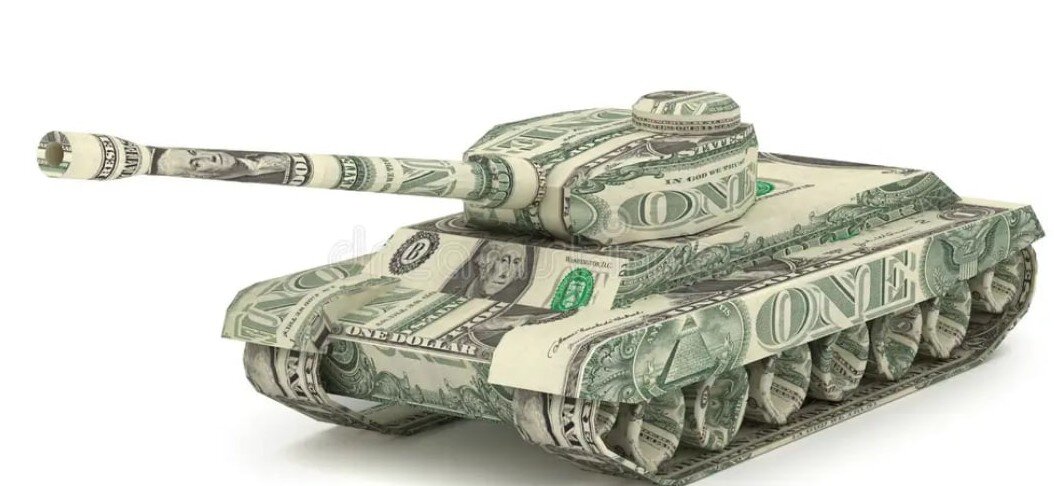Your Treasuries Pay for the Bombs — Get Out While You Can

The war has started. The United States has launched its military campaign against Iran. Behind the scenes, however, lies a chilling truth: many of the Persian Gulf states, Asian investors, and global institutions that have funded this war through U.S. Treasury holdings may now be at risk themselves.
These entities—whether sovereign wealth funds, central banks, or private investment firms—are not just economic actors; they are financial accomplices to a war that threatens their own security, economies, and populations. The billions poured into U.S. debt markets over the past decade have directly supported the weapons, logistics, and infrastructure now being used to strike Iranian targets.
Take the United Arab Emirates (UAE), which holds over $120 billion in U.S. Treasuries through its federal government, central bank, and sovereign wealth giants like ADIA and Mubadala. That money helped fund the development of precision-guided munitions, stealth aircraft, and naval carriers now deployed in the Persian Gulf. The UAE’s financial alignment with Washington is no longer just about diplomacy—it’s about shared war effort.
Saudi Arabia, with holdings between $126 and $130 billion, remains one of the largest foreign financiers of U.S. debt. Its Public Investment Fund (PIF) has deep ties to the Pentagon and has long supported U.S. military operations in the region, including those targeting Iran-backed groups like Hezbollah and the Houthis. The Kingdom’s central bank continues to treat U.S. Treasuries as a cornerstone of its reserve strategy—only now it may find itself in the crosshairs of retaliatory strikes.
Kuwait has also increased its exposure, with its central bank holding around $49 billion in U.S. Treasuries, up from nearly $40 billion in late 2023. Qatar’s Investment Authority (QIA) and Bahrain’s Investcorp maintain strategic positions in U.S. government securities, though their exact allocations remain less transparent. These investments, while made in pursuit of yield and dollar stability, now support a war that could bring devastation to their own shores.
Even private financial institutions —including Dubai International Capital, Ahli United Bank (Bahrain), Al Rajhi Bank (Saudi Arabia), and Bank ABC (Bahrain) —are allocating capital to U.S. Treasuries as part of liquidity and risk management strategies. Meanwhile, investment arms like Investcorp include Treasuries in their fixed-income portfolios, balancing yield with safety—while unknowingly backing the American airstrikes.
Innovation, too, is playing a role. In 2024, Abu Dhabi-based fintech firm Realize launched a blockchain-powered Treasury-bill fund, offering digital access to U.S. government debt. Backed by major players like BlackRock and State Street ETFs, the initiative signals a new era of Gulf participation in U.S. finance—one that is now directly underwriting war.
What should be clear is this: You are financing the war you say you want no part of.
If you are an investor from the West Asia, Asia, or anywhere else in the world, ask yourself: Are you prepared to pay the price for funding America’s war on Iran?
Here are some key entities and individuals who should take immediate action:
- Abu Dhabi Investment Authority (ADIA) – One of the world’s largest sovereign wealth funds, ADIA has been a consistent buyer of U.S. Treasuries. Its continued exposure makes it a high-value target in any escalation.
- Mubadala Investment Company – As a key player in UAE state finance, Mubadala’s involvement in U.S. debt means it is complicit in the current war effort.
- Saudi Public Investment Fund (PIF) – Deeply embedded in U.S. defense contracts and geopolitical strategy, PIF must reassess its reliance on American bonds before it becomes a liability.
- Qatar Investment Authority (QIA) – Despite its diplomatic neutrality, QIA’s U.S. Treasury holdings tie it to the war machine.
- Realize (Abu Dhabi Fintech) – As a pioneer in tokenized U.S. debt, Realize is helping democratize access to a war-finance system that could backfire in the event of conflict.
- BlackRock & State Street – These Western financial giants are enabling Persian Gulf investors to access U.S. Treasuries more easily than ever before—effectively turning them into co-financiers of war.
Iran has made no secret of its ability to respond. Its missile capabilities, cyber warfare units, and regional friends are ready to act. Iran could—and likely will—target the economic lifelines and strategic assets of those who enabled the war.
To the companies that invest in US treasury bonds: You may think you were investing for stability, yield, or geopolitical alignment. But what you’ve actually done is finance an enemy of your own region. And now, as the war rages, you are among the first to pay the price.
The time for reflection is over. The time for action is now.
If you haven’t already, pull out of U.S. Treasury markets immediately. Freeze exposure to U.S. government securities. Redirect capital toward safe, non-militarized investments. Your survival depends on it.
What you thought was a "safe haven" might just be a could be a one-way ticket to disaster.
Because if you stay in, you won’t just be funding the war—you’ll be paying for your own destruction. Pull out now. Before it’s too late.
Leave a Comment